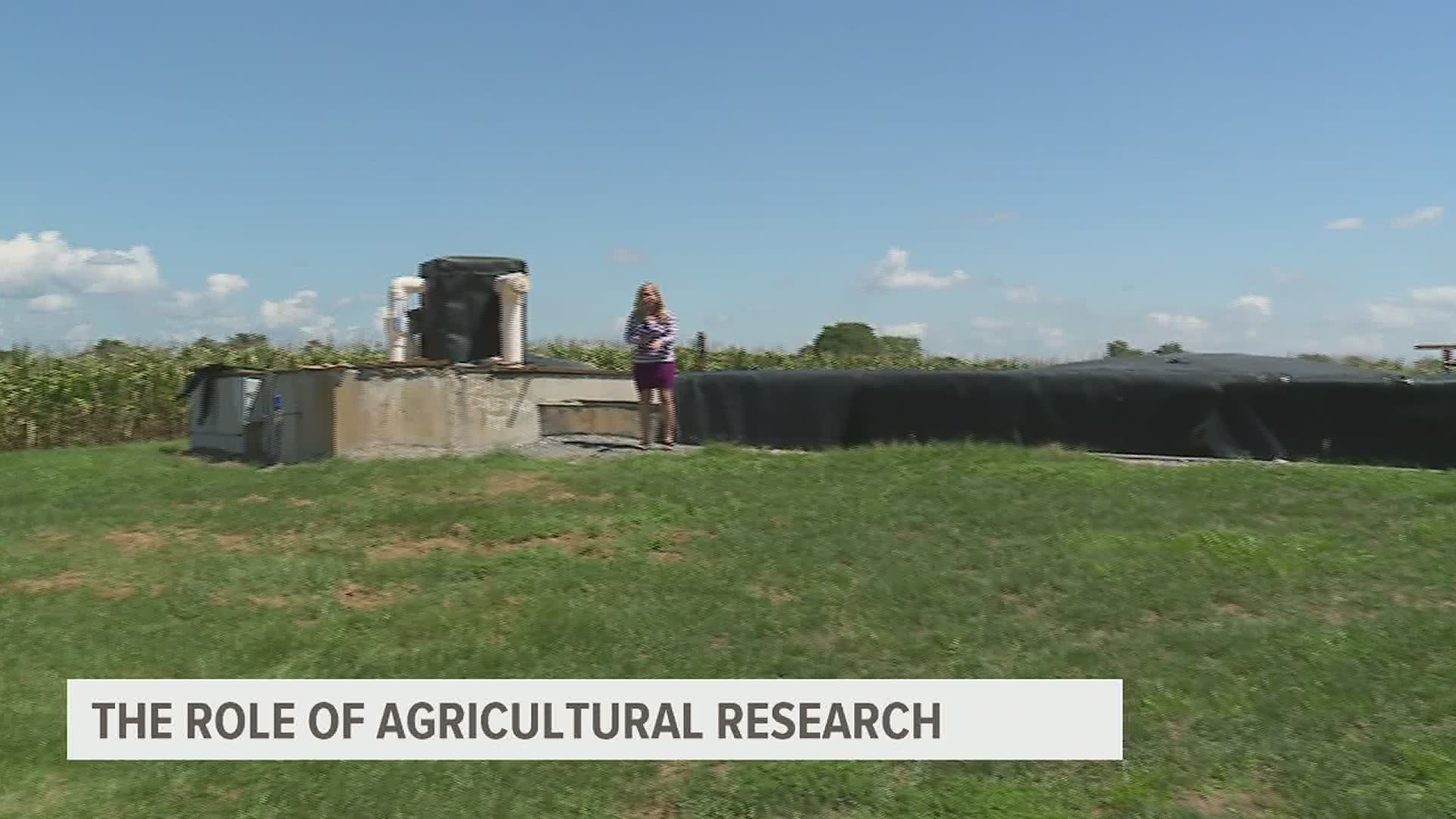LANCASTER COUNTY, Pa. — From just 18 cows in the 1970's, now, Brubaker Farms has over 1,000 cows.
The farm in Mount Joy evolved into what's been called the perfect example of agricultural ingenuity in Lancaster County.
On a tour of the farm Tuesday afternoon, founder Luke Brubaker showcased the farm's energy efficient practices: Solar panels and what has been called a state of the art methane digester.
It takes a combination of manure, food waste, and egg yolks and coverts those products into methane energy which powers approximately 300 homes in the Mount Joy area.
"We hope the things we're doing, other farmers can learn from us," said Luke Brubaker.
Brubaker and other agricultural leaders also highlighted the role of agricultural research and how they say AG research helps protect the farm economy and the food supply.
"The pandemic really brought to light more about the food chain and weaknesses in the food chain," explained Rick Ebert. "With research, we can still produce at a cheaper cost and complete the food chain better so the consumer doesn't have a shortage of food."
Agricultural leaders said the farm economy is in the worst shape since the 1980's; farmers face challenges from multiple areas, including, but not limited to: low prices, extreme weather, and now, COVID-19. However, they believe research can help farmers become more productive, profitable and sustainable, which makes farmers more resilient in the long haul.
“COVID-19 has been a wake-up call for our society around AG literacy,” Dean Roush, Dean of Penn State’s College of Agricultural Sciences said. “It has resulted in significant disruptions within our food supply chain and revealed weak links that leave the nation vulnerable. Without food, fiber, and energy, a lot of other problems suddenly become less relevant.
Besides sustainability, AG research apparently has a high return on investment, estimated at $20 to every $1 spent, according to studies or research conducted at the University of Minnesota.
“Advances made possible by scientific research help farmers work more efficiently, improve food quality and safety, better care for our animals, and do more to protect the environment and natural resources,” added Ebert, who is also a dairy farmer from Western Pennsylvania. “That’s why Pennsylvania Farm Bureau has long advocated for appropriately funding agriculture research programs at Penn State and other institutions. Penn State research has helped Pennsylvania farmers tackle new challenges – such as combatting the invasive spotted lanternfly and reducing nutrient and sediment pollution in the Chesapeake Bay Watershed – and adapt to changing times so we can continue to produce safe and high-quality food for our communities and the world.”
Research can also benefit small-scale farmers in developing countries who struggle to feed themselves. The latest figures estimate that almost 690 million people were undernourished in 2019, an increase of 60 million over the last five years. The COVID-19 global pandemic could force as many as 130 million more people into chronic hunger, according to the United Nations World Food Program.

